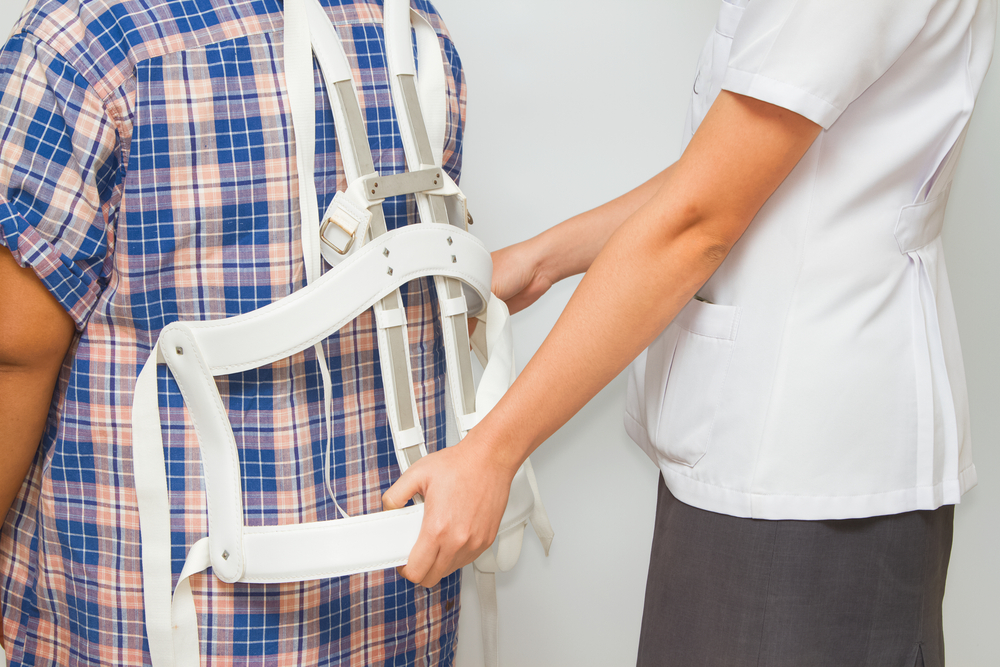
How To Sleep With Broken Ribs Comfortably (Steps For Recovery)
Sleeping with broken ribs is challenging and can be very painful, especially if you need to adapt to new sleeping positions. Broken ribs can make it hard to go about your daily routine, and missing out on quality sleep exacerbates the exhausting. Luckily, there's a few things you can do to find relief.
This post will help you understand the most common causes and symptoms of broken ribs and the best tips for speeding up recovery and sleeping with broken ribs.
What Causes Broken Ribs?
Broken ribs are often brought by blunt trauma. This can be caused by accident, falling on a hard surface, getting CPR, or any other physical activity where pressure is applied onto your rib bones.
Breaking your ribs causes swelling around the injured part and chest pain, especially when moving or breathing in. A broken rib may also cause shortness of breath, making it hard to take deeper breaths.
It can be pretty hard to tell a broken rib apart from a bruised one. That’s why you should consider making follow-up appointments with your physician to receive a proper diagnosis and treatment plan. In the meantime, it’d be wise to find the most comfortable way to sleep with bruised ribs, as discussed below.
Symptoms of Broken Ribs

The most obvious symptom of broken ribs is sudden pain on impact. When there’s a direct blow to your chest or the rib itself, your ribs may break, bruise, or separate from your breastbone.
Bruising may occur after a few hours, and your ribs may be tender to touch. Aside from tenderness, other symptoms of broken ribs include:
- Strong pain in your chest area, especially when you move, breathe, laugh, or sneeze
- Swelling around the affected ribs
- Feeling or hearing a crack when you move
- Discoloration around the injured part
Broken ribs are painful and usually hurt with every breath. And if your ribs are broken badly, they can severely damage internal organs. That said, make sure you see a doctor if part of your rib region is tender after an accident and if you experience rib pain when you breathe deeply.
Also, seek medical assistance right away if you feel fullness, pressure, or persistent pain at the center of your chest or pain that extends to your shoulders or arms. Such symptoms may mean a heart attack.Broken ribs are painful and usually hurt with every breath. And if your ribs are broken badly, they can severely damage internal organs. That said, make sure you see a doctor if part of your rib region is tender after an accident and if you experience rib pain when you breathe deeply.
Also, seek medical assistance right away if you feel fullness, pressure, or persistent pain at the center of your chest or pain that extends to your shoulders or arms. Such symptoms may mean a heart attack.
How Bruised Ribs Affect Sleep Quality

In most cases, sleeping with a rib fracture means that you’ll have to experience constant pain. And it’s no secret that persistent rib pain is no friend for healthy and restorative sleep. Depending on the severity of your bruise and the part of your rib that breaks, your internal organs can be at risk.
For instance, upper rib fractures can damage the vessels that transport blood to and from your heart. Plus, it’s not uncommon for fractured ribs to injure the lung itself, which sometimes leads to bleeding into the chest cavity or a collapsed lung. Lower rib fractures, on the other hand, cause injuries to the spleen and liver.
All these complications lead to constant pain, which negatively impacts sleep. Various studies show that individuals dealing with pain often take long to sleep and experience sleep fragmentation.
Note: Sleep deprivation can also be dangerous for a healthy individual who isn’t in constant pain. For instance, lack of sleep is often linked to:
- Weaker immune response
- Increased anxiety
- Hypertension
And when it comes to broken ribs, sleep deprivation comes with even more adverse effects. Studies show that lack of sleep can heighten your sensitivity to pain. So, you may experience more pain if you don’t get enough sleep.
So, How Can You Sleep With a Broken Rib?
As mentioned earlier, sleeping with broken ribs isn’t easy, irrespective of your position. Rib pain can make finding a comfortable position difficult, and you might have trouble breathing. And remember, adjusting to new sleep styles will disturb your sleep patterns.
Fortunately, there are things you can try to minimize the pain and sleep more peacefully.
Sleep While Sitting Upright
Having a rib injury is a very unpleasant experience. However, you’ll fasten the healing process if you take good care of yourself. Sleeping while sitting upright is one of the best ways to rest when recovering from broken ribs. While many sleepers aren’t used to it, this position will help your fractured ribs heal much faster.
Unlike sleeping on your side or back, which often puts undue pressure on your rib cage or spine, sleeping while sitting up is the perfect way to keep your chest straight. Plus, it will help you get up from bed with a lot of ease.
Keep in mind that this position only works best when accompanied by support pillows tucked underneath your head and arms. Lucky for you, various sleep products on the market can assist you in getting the comfort you need when sleeping while sitting upright.
For example, a backrest pillow is an excellent alternative to help you attain night balance. It ensures that your chest and back remain straight the entire time, and you’ll also be able to breathe and cough properly. Moreover, it will support your arms, helping you fall asleep faster in a restful position.
Another way to minimize tension from your ribs while sleeping in a seated position is by using a wedge pillow. These pillows are often used after major surgeries because they help minimize swelling and can also help you heal much faster.
The logic here is simple: you can position this pillow to aid in sitting completely upright or enable you to rest just slightly elevated, with your head and shoulders at a 30° angle for maximum rib comfort. You can also opt to sleep on a chaise lounge chair, which comes with armrests and adjustable sleeping positions, convenient features your bed doesn’t offer.
Practice Deep Breathing

Broken ribs may make you start taking shallow breaths to avoid the rib pain that comes with moving your chest cavity too much. And since bruised ribs rarely give the lungs enough support, you risk developing pneumonia and even a lung collapse (in worst-case scenarios) if you fail to practice deep breathing.
Holding a blanket or pillow against the fractured ribs can make deep breathing less painful. You can also take your pain medication first to help relieve rib pain.
To take these breathing exercises:
- Sit upright in your chair and put your hands over the injured part for support.
- Take a deep breath and gently fill your lungs.
- Hold your breath for 10 seconds before exhaling slowly. As you do this, you can consider coughing to help loosen mucus.
You can repeat this procedure up to five times every two hours for better results.
You shouldn’t start any breathing exercises for bruised ribs recovery until your physician gives you the green light. For the initial post-injury recovery, consider focusing on rest to best relieve the pain, manage inflammation, and let your injured ribs begin to mend.
Sleep on Your Back

Sleeping on your back is another great position for individuals with broken ribs, as it promotes neutral spinal alignment and helps in weight redistribution. This means that this sleep position won’t probably cause tension accumulation, which helps keep the pain levels at night to a minimum.
Just ensure you find the perfect mattress to help you achieve healthy spinal alignment. Back sleepers generally need to use medium to medium-firm sleep surfaces. If you’re a heavy sleeper, you might want to opt for a medium-firm or even firm mattress, while lightweight individuals should stick to medium to medium-soft models.
Overall, larger folks need sturdier support, while petite individuals should sleep on a softer surface to cushion painful pressure points. That said, consider using a rolled towel or small pillow under your knees to help reduce tension from your lower back.
Sleep With Your Back Elevated
While most sleep experts don’t recommend sleeping on your back when recovering from a rib injury, a slight elevation on the back as you sleep can improve blood flow, helping you sleep better.
One of the best ways to achieve these results is by sleeping on a wedge pillow. Although stacking a few standard pillows on top of each other can also help, a solid wedge pillow will deliver sturdy, uniform support.
Alternatively, you can get an adjustable bed to help you sleep in a slightly elevated position. These beds come with customizable features that sleepers can twerk to their own advantage. For instance, the zero gravity feature comes in handy whenever a patient wants to assume an elevated but comfortable sleeping angle. You can adjust your mattress to lie down or sit up without straining your ribs too much.
Build a Pillow Fortress
One of the main issues of sleeping with bruised ribs is involuntary movements when you sleep. Rarely do we wake up in the same position we fall asleep in. Tossing and turning in your sleep puts pressure on the rib cage, likely aggravating your rib injury. Fortunately, surrounding yourself with pillows can help you stay still at night, as the barriers will keep you from moving during sleep.
However, don’t wrap your bruised or fractured rib with compression wraps as they might limit your ability to breathe deeply, thus increasing the risk of lung infection, chest cavity internal bleeding, and pneumonia. Instead, place pillows beneath your arms to keep you from rolling around. Ensure you also put at least two pillows under your knees to minimize back stress and pain.
Don’t forget to keep an extra pillow, as you may want to brace it against your injured ribs while coughing at night.
Sleep on a Recliner Chair
Some patients find that sleeping in a recliner chair is more comfortable and much easier than getting in and out of bed. This is because resting in a reclining position will exert less pressure on the rib cage, providing pain relief and minimizing the discomfort you feel while you sleep.
Most sleep experts recommend recliners for sleeping in a seated position, as they can give you the perfect elevation and comfort. One amazing thing about recliners is that you can use the zero gravity option to adjust your back and head as needed. Recliner chairs that can easily move forward and backwards will also make it easy to get in and out of the chair.
Note: If you suffer from hip or lower back pain, sleeping upright might aggravate these issues. That said, you might want to try out other viable alternatives that will help relieve pain.
How Can You Reduce Pain When Sleeping With Broken Ribs
Your doctor should prescribe the pain relievers you must take before sleeping. Consider taking the drug approximately 30 minutes before surrendering to sleep. Keep in mind that some drugs may cause sleep apnea, making it hard for you to stay asleep at night. That said, always consult your physician for further assistance if you have any adverse reaction to pain medications.
You can also try some over-the-counter (OTC) pain relievers, such as Advil and Tylenol, to help you find some relief as you sleep. Tylenol relieves pain, as acetaminophen keeps the brain from producing chemicals that make us feel pain. This makes it a perfect alternative for easing minor discomfort.
On the other hand, Advil is a non-steroidal anti-inflammatory medication that also features ibuprofen. It keeps the body from releasing inflammatory substances, which can help minimize severe pain and swelling. If your physician agrees, you can use both Advil and Tylenol at the same time. Also, consult your doctor before using these drugs if you have stomach ulcers, kidney disease, high blood pressure, or heart disease.
Alternatively, you can relieve the pain by applying ice to your ribs, which also helps reduce the swelling. Wrap an ice pack in a towel or clean cloth and then hold it on the injured part for roughly 20 minutes every hour. After 2 to 3 days, you can use the covered ice pack for about 10 minutes thrice daily.
Other Remedies to Consider
Aside from the tips mentioned above, you can try a few other tricks to help you sleep comfortably with multiple broken ribs and speed up recovery.
Have Enough Rest
Sleep plays a pivotal role during the healing process, so ensure you get enough rest. Try to get at least eight hours of sleep each night, and feel free to nap during the day when you feel tired.
Be Physically Active

While you do need to have a lot of rest, it’s also crucial that you don’t spend the entire day sleeping. Of course, it’s perfectly normal for anyone in pain to feel down and out of sorts. However, try to be physically active as much as possible, as this will increase blood flow, promoting healing.
That said, consider walking around the house during the day or before going to bed to help keep you active. Just ensure you consult with your physician before trying other strenuous activities, such as lifting a heavy object.
Stick to Healthy Food
Aside from adapting to a comfortable sleep position, eating healthy meals is also beneficial to your body’s healing process. Ensure you get enough proteins, vitamins, and minerals as you recover.
Food rich in iron and potassium is also important as it helps build and maintain new tissues. Potassium minimizes the loss of calcium in your bones, while calcium plays a crucial role in keeping your red blood cells healthy.
If you can’t incorporate all the nutrients from your meals, you may need to check with your doctor for the best supplements.
Cough When You Need to Cough

Contrary to popular belief, holding your coughs in could only worsen the pain and even lead to a lung infection. Instead, as we’ve mentioned earlier, hold a pillow or blanket against your chest anytime you want to cough to help make the process less painful.
Closing Thoughts
Knowing how to sleep with multiple broken ribs can be quite challenging at first. Luckily, finding the most comfortable position for your needs and managing your pain using pain relievers, heating pads, and ice packs should help you get a good night’s sleep. Remember to stay as relaxed and stress-free as possible, consult with your physician before using any drug, and follow up with medical practitioners as advised.
